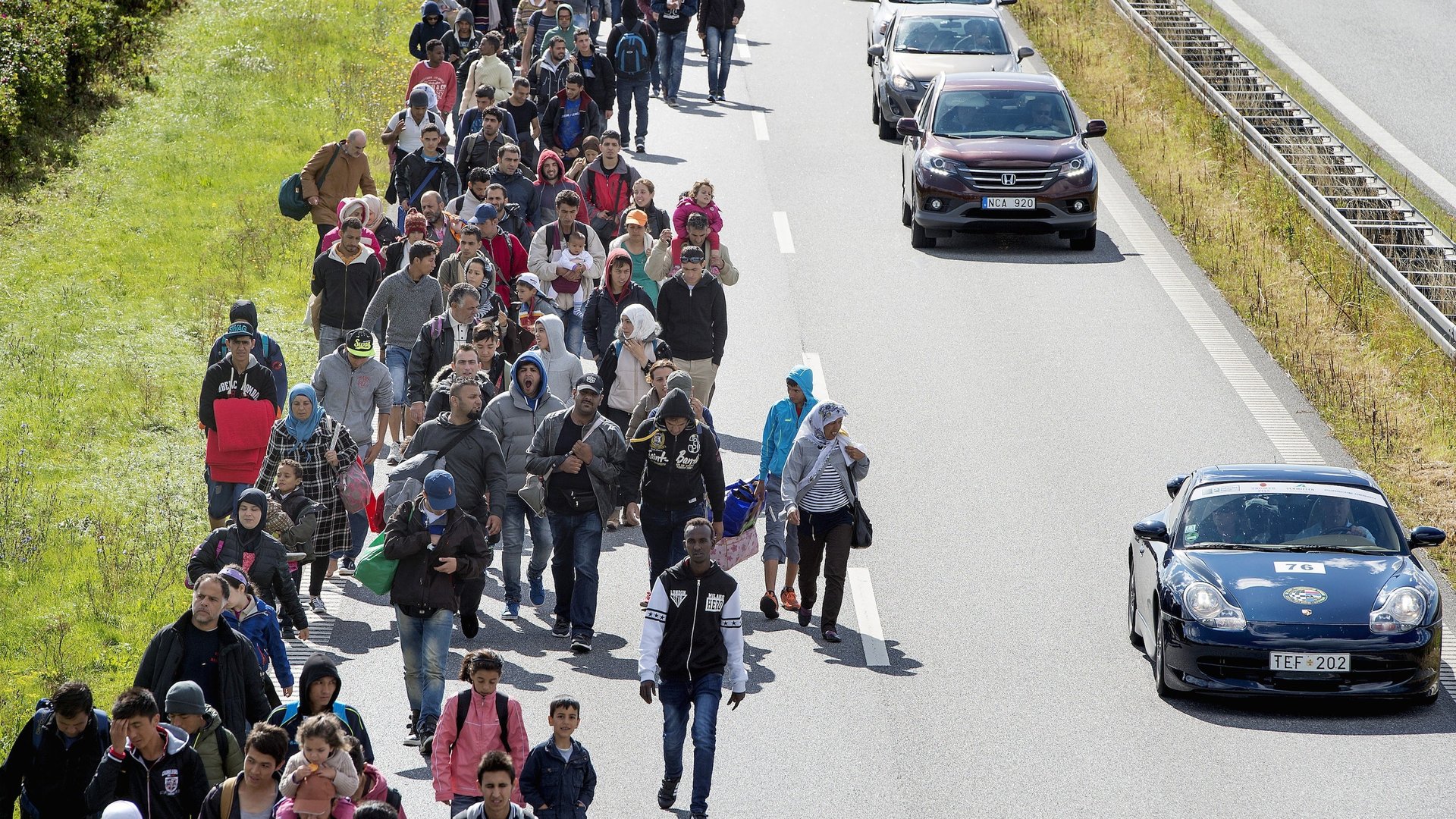A new law would allow Danish police to seize refugees’ valuables
Nordic countries have a reputation for compassionate refugee policy. In recent months, however, the Kingdom of Denmark has changed its tune.


Nordic countries have a reputation for compassionate refugee policy. In recent months, however, the Kingdom of Denmark has changed its tune.
New initiatives have cut down on the length of residency for refugees guaranteed by the United Nations Convention on Refugees from five years to three; “while permits for those granted regular refugee status would be reduced from five to two years,” according to Agence France-Presse (AFP). The country has similarly introduced temporary, one-year residency permits for people fleeing specific war zones, like that in Syria; and lengthened the wait time to three years before family reunifications can be granted.
But a new law under consideration in Copenhagen is sparked outrage from the international community. Though items of “personal significance,” such as wedding rings, will be exempt, according to AFP, Danish police will be allowed to search asylum seekers and their belongings for any cash or valuables that may be used to pay for their stay at an asylum center.
“The proposal is almost certain to pass parliament,” writes The Washington Post’s Rick Noack.
In an email to the Post, a representative of the Danish ministry of integration confirmed:
The bill presented on 10 December 2015 provides the Danish authorities with the power to search clothes and luggage of asylum seekers—and other migrants without a permit to stay in Denmark—with a view to finding assets which may cover the expenses.
The bill, which might grandfather-in refugees already in-country, and is expected to pass in Jan. 2016 and be implemented as soon as February, “has been branded petty and cruel, and some opponents have asked whether the government would also be taking out asylum seekers’ gold fillings,” Zachary Whyte, an asylum and integration researcher at the University of Copenhagen, told the Post.
The ministry has attempted to justify the move by detailing the expenses incurred by refugee families, which includes tuition-free enrollment for children at Danish schools, as well as government-sponsored health care on par with what the typical Dane receives. “The aim of the Danish integration effort is to support refugees in order for them to become participating and financially independent citizens,” a ministry rep told the Post.
The plan has garnered significant criticism at home and abroad, according to Denmark’s English-language news source The Local, with some observers going as far as to draw parallels with measures affected by Nazi Germany against interned and murdered Jews. (The Third Reich confiscated Jewish property, ranging in value from gold fillings to priceless paintings and palatial estates, between 1933 and 1945.)
Some see it as part of a wider, cynical plan to repel refugees from coming to Denmark. “The country has very successfully sidestepped the refugee crisis that has hit its neighbor Sweden by doing everything possible to make itself unappealing to refugees,” The Local explains. “In September, for example, its government went so far as to publish an advert in Lebanese newspapers informing would-be asylum seekers of its tough new regime.”
Whether the central motive is to minimize the costs of refugee intake, or truly to discourage migrants from making their way to the kingdom, it certainly goes against the grain of genuine humanitarianism: compassion without expectation of return.